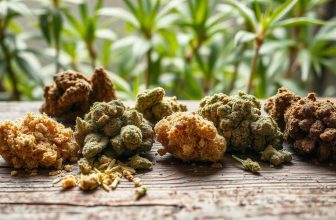Japan, known for its strict regulations on controlled substances, has made a legislative amendment concerning cannabis and its derivatives, including cannabidiol (CBD). This new direction is redefining the CBD market in the country, influencing both production and consumption.
Legislative reform and market opportunities
Cannabis legislation is evolving rapidly, particularly in Europe, with Germany's recent legalization of recreational cannabis and France's potential legalization of medical cannabis in 2025.
In Asia, too, things are changing, notably in Japan, which has taken a major step towards cannabis reform by amending its 75-year-old cannabis control law. An expected announcement from the Ministry of Health, Labor and Welfare (MHLW) is expected to set new standards for levels of THC, the psychoactive component of cannabis. These legislative adjustments, scheduled to be finalized this summer, offer unprecedented prospects for the CBD market in Japan.
The key players in this transformation
Yuji Masataka, a pioneer and expert in medical cannabis in Japan, is playing a crucial role in this paradigm shift. After meeting American expert Jeffrey Hergenrather, Masataka founded Green Zone Japan, a non-profit organization dedicated to promoting the recognition of medical cannabis. Today, he continues to advocate the potential benefits of CBD and other derivatives, while serving as vice-president of the Japanese Society for Clinical Research on Cannabinoids.
Impact on CBD production and distribution
Previously dominated by isolated CBD products, due to regulations requiring unobservable THC levels, the Japanese CBD market could see significant expansion. Current restrictions, which limit imports to products derived solely from cannabis stems and seeds, will be lifted, facilitating a diversification of available offerings, and an upward trend in the sale of CBD products in Japan is already beginning to be seen. Euromonitor International, a market research company, assumes a positive evolution of the sector with a change in consumer concerns, more health-conscious and therefore looking for alternatives to substances such as alcohol or cigarettes. In one of its reports, the firm predicts that CBD sales will exceed those of the black market by 2026.
Follow us on 
Join the Community
Don't miss any news with our newsletter





